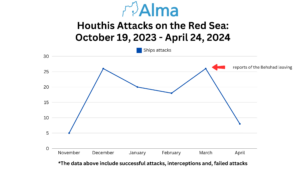“The Caesar’s Act” or in its formal name “Caesar Syria Civilian Protection Act”, was approved by the U.S. Congress and Senate on Dec. 11, 2019. The act, effective June 17, 2020, allows the United States to impose sanctions on Bashar Assad’s regime and anyone who aids him or his regime, namely, Iran and Russia and of course the Hezbollah organization in Lebanon, including Lebanese and Syrian institutions and banks.
The act is named after the nickname given to a Syrian military photographer who smuggled thousands of images to the west, documenting the torture of thousands of people in Syrian prisons between the years 2011 to 2013. The act expands the sanctions regime and targets anti-Syrian institutions and personalities (the Syrian President, the Prime Minister and Deputy Prime Minister, army chiefs, senior Interior ministry officials and those in charge of security services and prison facilities).
As expected, the Syrian Ministry of Justice issued a statement claiming that the images are fake. The Syrian regime is now under pressure and is preparing for the expected US sanctions. Syrian Economy Minister Samer Khalil said the government is continuing to strengthen economic cooperation with the countries that support it, referring to Iran and Russia.
On June 11, Syrian news agency “Sana” responded to the proposed Caesar’s act defining the act as “a new chapter in the war against Syria that cannot be separated from previous US violations of illegitimate and illegal methods introduced by arbitrary unilateral measures meant to pressure Syria into changing its positions.” US officials estimate that the sanctions will paralyze the Syrian economy since they target Syria’s financial infrastructure.
As of now, it appears that the expected act is already causing the Syrian currency rate to crash while causing a rising in prices (food, medicine, etc.). Demonstrations have begun in various parts of Syria (Suwayda and Idlib) in light of the currency crash and the rise in prices.
Supporters of the sanctions want to block Syrian reconstruction because the Assad regime confiscated the property of Syrian refugees fleeing the war zones and because of the ethnic cleansing carried out by the Syrian regime during the war.
However, sanctions critics claim that imposing sanctions on Syria would cause rapid impoverishment and further suffering for the population, preventing the restoration of the state, necessary to achieve basic stability that will allow displaced people to return to their homes.[1] Opposition parties are also not optimistic about the effectiveness of the new sanctions and their desired impact on regime changes. This is because even without new sanctions, Syria’s economy is near collapsing.
The Caesar act will affect not only Syria, but also Lebanon, due to Hezbollah’s involvement in Syria and its relations with the Syrian regime. In Lebanon, there is concern that the act will affect the Lebanese government’s negotiations with the IMF (international Monetary Fund), in regards to the providing of emergency assistance to the Lebanese economy.

The Lebanese commentator, Ali Sabiti, who opposes Hezbollah, explains that the Lebanese government will fall apart due to the new sanctions because it is difficult to exclude Lebanon from Syrian calculations in light of the political majority in Lebanon loyal to Syria. Regarding Hezbollah’s ability to withstand sanctions, Sabiti explains that Hezbollah will deal with the sanctions: “Hezbollah will meet the sanctions proudly as it is a test that Hezbollah will face by itself.”[1]
Regardless of the Caesar act and even before its implementation, the Syrian and Lebanese economy are in a very bad situation. In our estimation, the act will intensify the economic harm to Syrian and Lebanese citizens and commercial companies (mainly Chinese and Russian) who maintain business relations with the Syrian economy in the interest of state rehabilitation.
The act will not change the Syrian regime’s policy or weaken Hezbollah’s military or political stance. Hezbollah’s narrative represents the persecuted and oppressed minority; the act will only enhance this narrative throughout the population that supports it anyway.
We believe the Syrian regime (sponsored by Russia) and Hezbollah (sponsored by Iran) will find ways to circumvent the act that will serve the continuation of their operative activities and interests.
[1] Rhea Shartouni, “Caesar’s law” can Lebanon avoid splinters from Washington sanctions?” AA.com [Anadolu Agency, Turkish News Agency] (accessed: 11 June 2020) https://www.aa.com.tr/ar/






